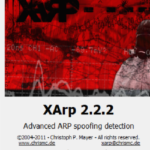
How to Become an Analyste Informatique Spécialisé Administrateur Système
Understanding the Role of a System Administrator Analyst in IT
The position of Analyste Informatique Spécialisé Administrateur Système (Specialized IT Systems Administrator Analyst) is a crucial role in modern organizations that rely on robust information systems to function efficiently. This professional ensures the stability, security, and optimization of information systems, which are the backbone of business operations. In this article, we’ll explore what this job entails, the skills required to excel in it, and how one can pursue a career in this field.
What Does a System Administrator Analyst Do?
A System Administrator Analyst is responsible for managing, analyzing, and improving the information systems within an organization. These systems include hardware, software, databases, and networks, all of which must work in harmony to ensure smooth business operations. In addition to system management, they play a critical role in ensuring the security of these systems from cyber threats, while continually seeking ways to improve their performance.
Their duties can be broken down into four primary areas:
- Administrer un Système d’Informations (Administering an Information System)
- Améliorer un Système d’Information (Improving an Information System)
- Analyser les Performances d’un Système d’Information (Analyzing the Performance of an Information System)
- Gérer la Sécurité Informatique (Managing IT Security)
Let’s break these down further to understand the scope of each responsibility.

1. Administering an Information System
The primary responsibility of a System Administrator Analyst is to oversee the day-to-day operation of the organization’s information systems. This involves:
- System Monitoring: Ensuring that all components—servers, databases, networks, and software—are running efficiently and without interruptions.
- Routine Maintenance: Regularly updating and patching systems to prevent downtime and fix bugs.
- User Management: Managing access to the system by creating user accounts, setting permissions, and monitoring user activity.
- Data Backup and Recovery: Implementing and managing backup solutions to ensure that critical data can be restored in case of a failure or breach.
2. Improving an Information System
A significant part of the job is identifying opportunities to enhance the organization’s information systems. This could involve:
- System Optimization: Finding ways to make the system faster, more reliable, and more scalable as the organization grows.
- Software Upgrades: Evaluating and implementing new software solutions that meet the changing needs of the business.
- Process Automation: Automating repetitive tasks to increase productivity and reduce the potential for human error.
- Hardware Modernization: Assessing the current hardware infrastructure and upgrading or replacing outdated components.
Improving a system often requires a combination of technical expertise and strategic thinking, as it involves aligning technology with business goals.
3. Analyzing the Performance of an Information System
System performance analysis is vital to maintaining a high-performing IT environment. This involves:
- Monitoring System Metrics: Tracking performance indicators such as system uptime, response times, and resource utilization to detect issues before they escalate.
- Performance Tuning: Adjusting system configurations to improve efficiency, reduce latency, or resolve bottlenecks.
- Troubleshooting: Quickly identifying the root causes of system performance problems and applying solutions to fix them.
- Reporting and Documentation: Regularly documenting system performance and creating reports that help in decision-making, such as when additional resources or changes are needed.
4. Managing IT Security
One of the most critical aspects of this role is ensuring the security of the organization’s information systems. This involves:
- Risk Management: Assessing potential security risks and vulnerabilities in the system and developing strategies to mitigate them.
- Firewalls and Security Protocols: Setting up and maintaining firewalls, intrusion detection systems, and other security measures to protect against unauthorized access and cyber attacks.
- User Security Training: Educating users on best practices for password security, phishing attacks, and other security threats.
- Incident Response: Responding quickly to security breaches or malware attacks, containing the damage, and restoring the system to its secure state.
Security management requires constant vigilance and an in-depth understanding of current cyber threats.
What Skills Are Required for This Role?
To become a System Administrator Analyst, certain technical and soft skills are necessary:
- Proficiency in Operating Systems: Strong knowledge of Linux, Windows, or Unix-based systems is essential. A system administrator needs to be comfortable with command-line interfaces and scripting languages.
- Networking Expertise: Understanding how networks operate, including TCP/IP protocols, DNS, and VPNs, is crucial.
- Database Management: Familiarity with managing databases, such as MySQL, SQL Server, or Oracle, is often required.
- Cybersecurity Knowledge: A deep understanding of cybersecurity principles, including encryption, firewalls, and anti-malware solutions, is critical to protect information systems.
- Problem-Solving Skills: The ability to diagnose and resolve technical issues quickly and efficiently is one of the most important skills for this role.
- Analytical Thinking: System administrators need to assess system performance, identify inefficiencies, and find ways to improve them.
- Communication Skills: Since this role involves working with different departments and possibly training non-technical staff, strong communication skills are important.

What Level of Education is Required?
While the exact education requirements can vary depending on the employer, most System Administrator Analysts will need:
- A Bachelor’s Degree in Computer Science, Information Technology, or a related field. Some employers may accept relevant experience in lieu of a degree, but a formal education provides a solid foundation in essential areas like networking, systems administration, and security.
- Certifications are highly valuable in this field. Certifications such as CompTIA Security+, CompTIA Network+, Microsoft Certified: Azure Administrator Associate, or Red Hat Certified System Administrator (RHCSA) can help validate your expertise and increase your employability.
- Experience: Entry-level positions might require 1–3 years of experience in IT, while more senior roles could demand 5–7 years of experience managing complex information systems.
Conclusion
The role of an Analyste Informatique Spécialisé Administrateur Système is highly technical, requiring a strong foundation in systems management, performance analysis, security, and continuous improvement. It is a role that offers both challenges and rewards, as businesses depend on these professionals to keep their information systems running smoothly and securely. To pursue a career in this field, aspiring professionals should focus on gaining technical skills, relevant experience, and certifications that will set them up for success in an ever-evolving IT landscape.















I wanted to take a moment to commend you on the outstanding quality of your blog. Your dedication to excellence is evident in every aspect of your writing. Truly impressive!